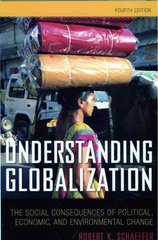Question
1. For each of the following items, which component of GDP does it belong to? (Consumption, none of the four, investments, government spendings, or Net
1. For each of the following items, which component of GDP does it belong to? (Consumption, none of the four, investments, government spendings, or Net exports)
A. Laptops made domestically and exported to foreign countries.(Consumption, none of the four, investments, government spendings, or Net exports)
B. The wages paid to public school teachers.(Consumption, none of the four, investments, government spendings, or Net exports)
C. The machines purchased by factories for making clothes. (Consumption, none of the four, investments, government spendings, or Net exports)
D. You go to a restaurant for lunch and spend $50. (Consumption, none of the four, investments, government spendings, or Net exports)
E. Bandages purchased by a doctor for providing medical treatments. (Consumption, none of the four, investments, government spendings, or Net exports)
2. For each of the following separate situations, determine the associated problem of inflation. (money illusion, future price level uncertainty, menu cost, shoe leather costs, price confusion, wealth redistribution, or tax distortions)
A. I don't want to sell my stocks even though I can make a huge gain. If I sell my stocks, I need to pay a large amount of tax, which does not factor in inflation.
B. Companies want to raise prices after inflation. Yet they are reluctant to do so as customers will be upset by price increases.
C. Some banks are not willing to loan out money when the inflation rate is very high. The interest received by banks may not cover the inflation cost.
D. Because of the inflation, I need to regularly look for banks which offer high interest rate for savings. This is very time consuming.
E. Housing prices keep rising. This must be due to a low housing inventory.
3. For each of the following situations, classify whether the person is now either structurally unemployed, frictionally unemployed, cyclically unemployed, discouraged workers, or underemployed
A. Tom wants to work full time but his company can only offer him 15 hours of work per week.
B. John worked as an attorney for over 20 years. Yet he was laid off during this very severe recession. He is looking for work now.
C. Mary was laid off after her company purchases robots to do the work and substantially reduces the number of workers. She is looking for work now but her skills are not in demand by the economy.
D. Jessica has just relocated to a new city. She is looking for a job as a financial analyst and she currently has 20 interviews lined up.
4. For each of the following separate scenarios, determine what happens to the equilibrium interest rate and what happens to the equilibrium quantity of loans in the domestic loanable funds market. ( The equilibrium interest rate decreases and the equilibrium quantity of loans increases, Both the equilibrium interest rate and the equilibrium quantity of loans increase, Both the equilibrium interest rate and the equilibrium quantity of loans decrease, or The equilibrium interest rate increases and the equilibrium quantity of loans decreases.
A. Foreigners put more money in the domestic loanable funds market.
B. Firms are optimistic about the economy and they want to expand their production capacity.
C. Government implements a new policy that people need to pay more taxes on the interest earned in their savings accounts.
D. Many companies do not invest in the city because of high corporate tax rates.
Step by Step Solution
There are 3 Steps involved in it
Step: 1

Get Instant Access to Expert-Tailored Solutions
See step-by-step solutions with expert insights and AI powered tools for academic success
Step: 2

Step: 3

Ace Your Homework with AI
Get the answers you need in no time with our AI-driven, step-by-step assistance
Get Started


